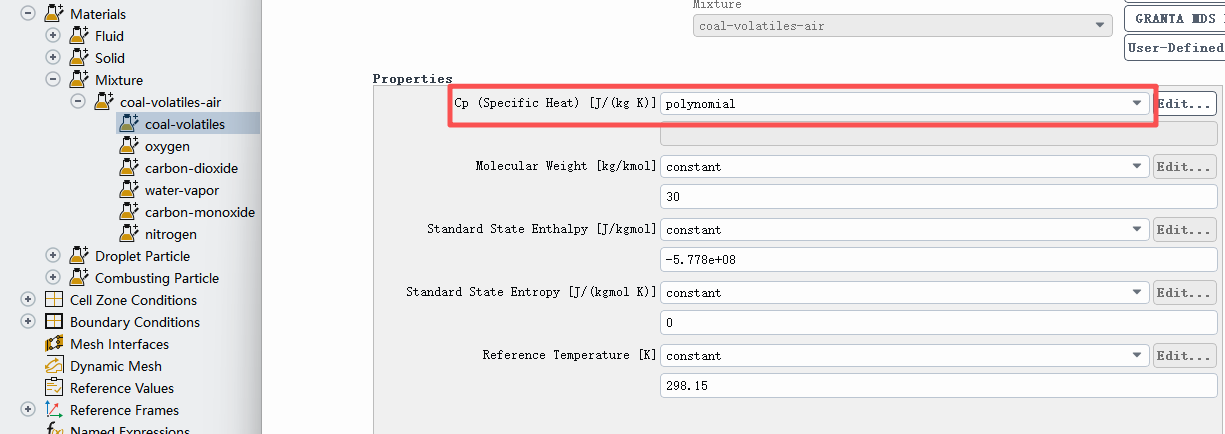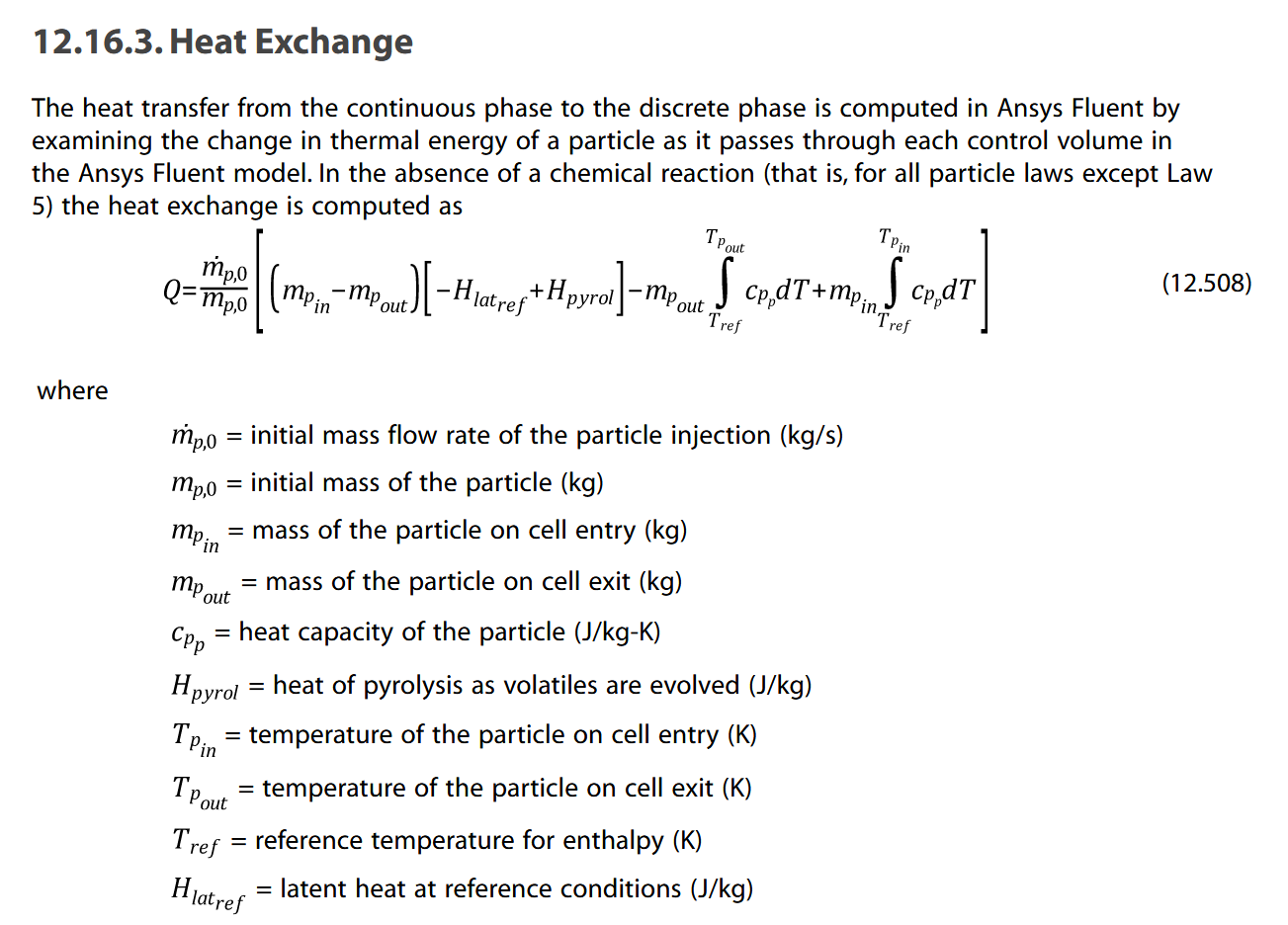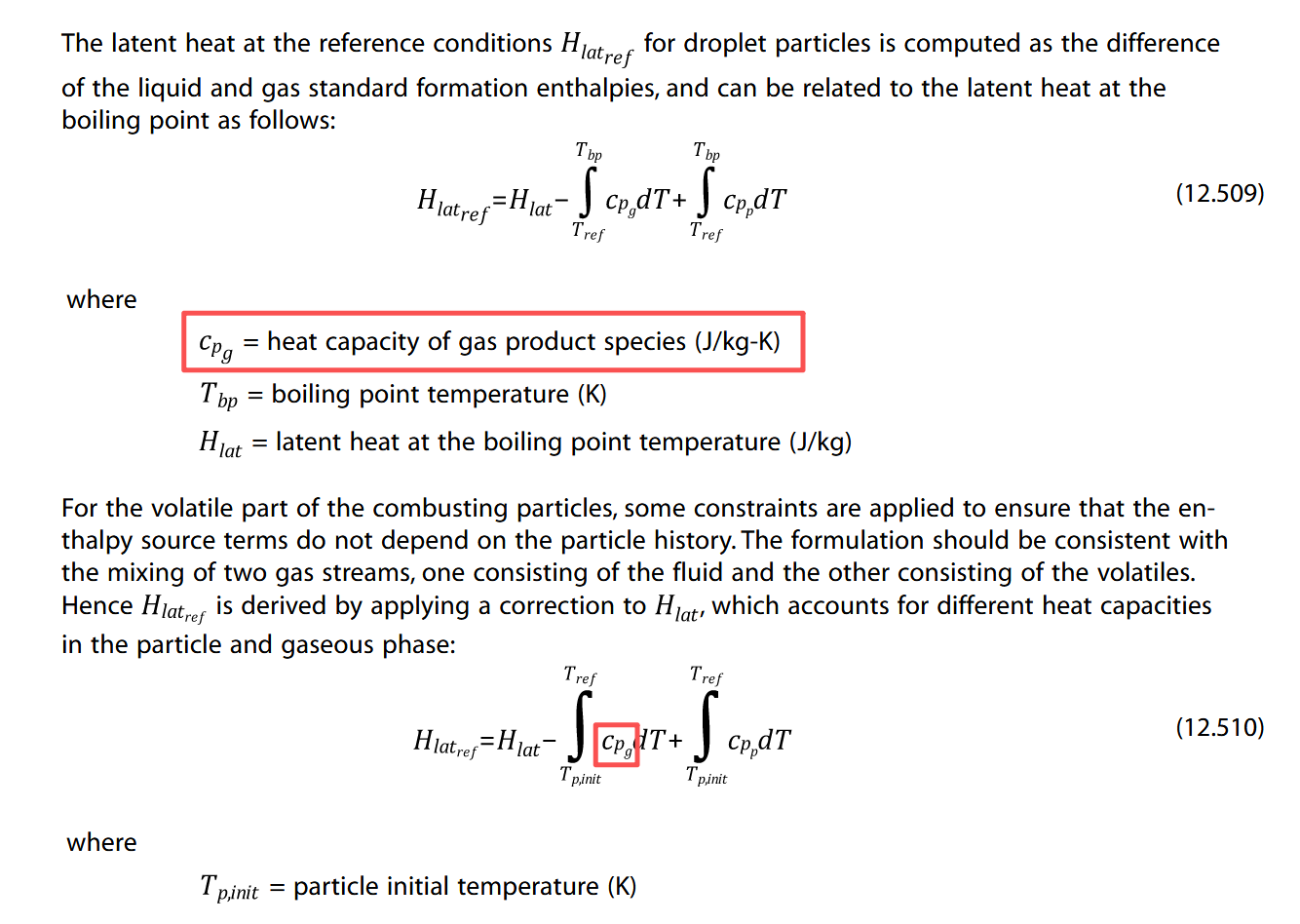TAGGED: dpm
-
-
August 22, 2025 at 1:27 am
-
August 22, 2025 at 8:16 am
Rob
Forum ModeratorMost of the materials are set as you've found and then used in a mixed form in the cells. The various cell values can be found in the documentation.
-
August 22, 2025 at 2:28 pm
Mark O
Ansys EmployeeThere is no documented access to the material property routines. The simplest thing is to change the specific heat property to a user defined property that calls a function to evaluate the specific heat as a function of temperature. Then you can call the same function anywhere else in the code where you need it.
-
August 25, 2025 at 8:18 am
hefeinanzhan
SubscriberIn the process of writing a source term UDF for volatile particles and the continuous phase, I encountered this issue. Currently, the mass source term is completely consistent with Fluent's default calculation, but there's always some discrepancy in the energy source term. When calculating the energy source term, does the variable C_pg in Equation 12.510 represent the specific heat capacity of the volatiles?
-
August 25, 2025 at 8:25 am
hefeinanzhan
SubscriberIn the test case, I set the specific heat of the volatiles to 2500. Below are the output results and my UDF source code:DEFINE_DPM_SOURCE(dpm_source, c, t, S, strength, tp){if (TP_CURRENT_LAW(tp) == DPM_LAW_DEVOLATILIZATION){if (tp->part_id == 0){real cp_g = 2400;real H_lat_ref = strength * (TP_MASS0(tp) - TP_MASS(tp)) * (cp_g * (T_REF - TP_INIT_TEMP(tp)) - tp->Cp * (T_REF - TP_INIT_TEMP(tp)));real Q_in = TP_MASS0(tp) * (TP_T0(tp) - T_REF) * tp->Cp;real Q_out = TP_MASS(tp) * (TP_T(tp) - T_REF) * tp->Cp;real Q = strength * (Q_in - Q_out);real Q_cal = Q - H_lat_ref;real M_cal = (TP_MASS0(tp) - TP_MASS(tp)) * strength;printf("Fluent: energy = %.24e, mass = %.24e\n", S->energy, S->species[0]);printf("My UDF: energy = %.24e, mass = %.24e\n", Q_cal, M_cal);printf("======================================================\n");fflush(stdout);}}}
-
- You must be logged in to reply to this topic.



-
3767
-
1333
-
1168
-
1090
-
1014

© 2025 Copyright ANSYS, Inc. All rights reserved.











